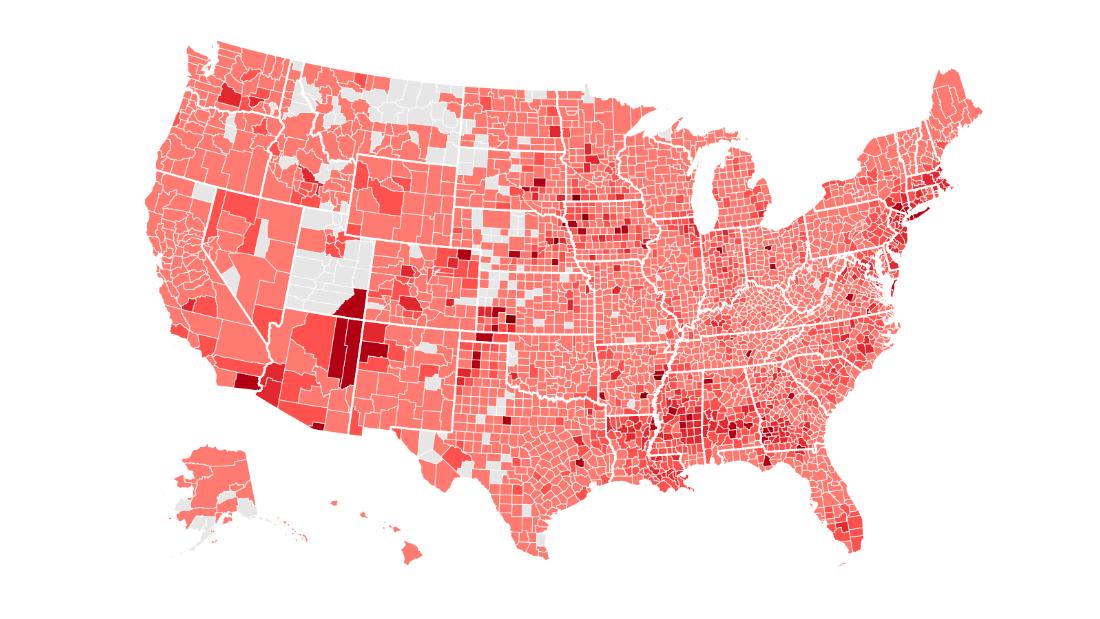Russia’s sovereign wealth fund announces agreement with Brazil’s Bahia state to supply up to 50 million doses of Sputnik-V
From CNN’s Zahra Ullah and Matthew Chance in Moscow
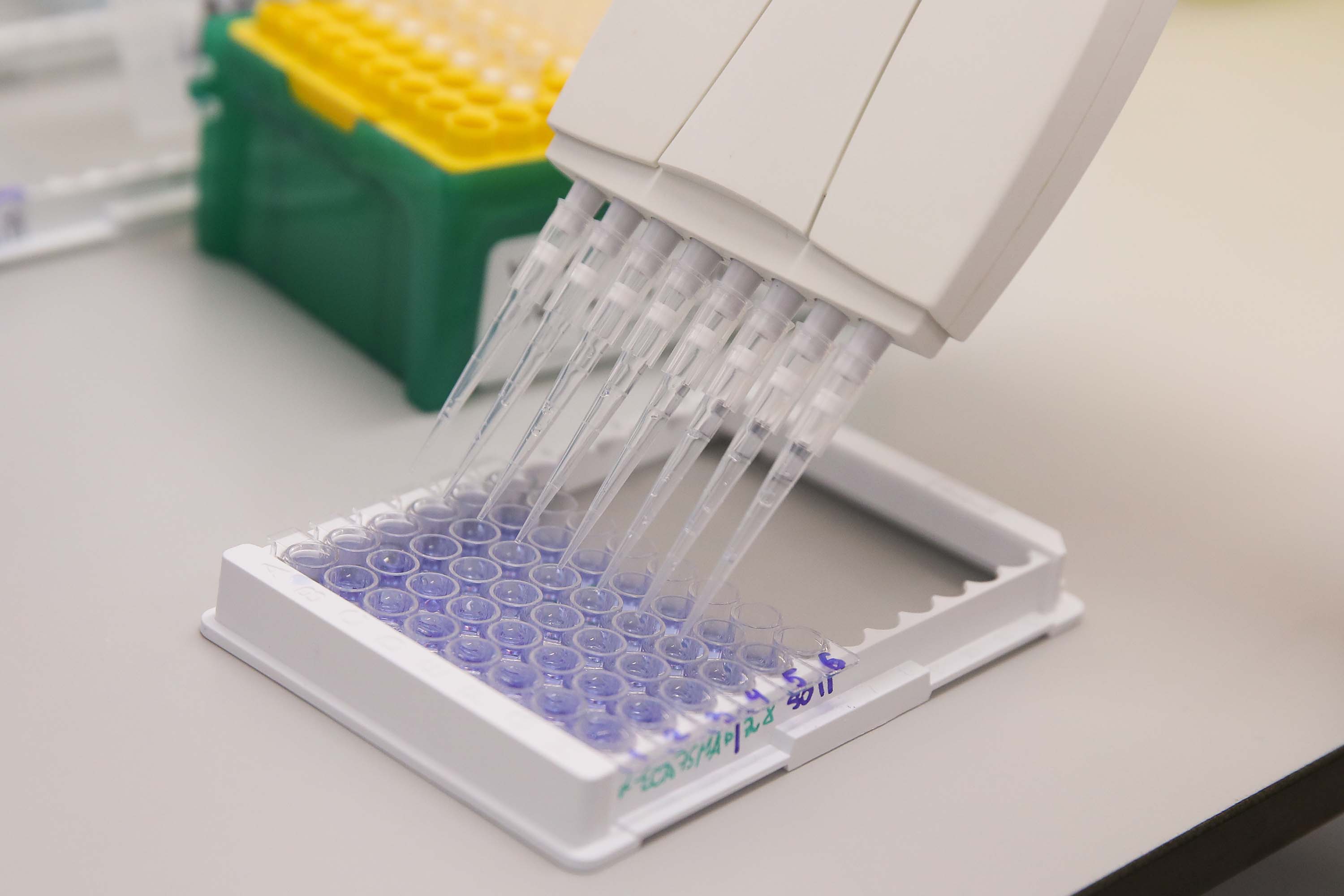 Work is carried out in a laboratory at the Moscow-based Gamaleya Institute, where a Covid-19 vaccine is being developed. Vyacheslav Prokofyev/TASS/Getty Images
Work is carried out in a laboratory at the Moscow-based Gamaleya Institute, where a Covid-19 vaccine is being developed. Vyacheslav Prokofyev/TASS/Getty ImagesThe Russian Direct Investment Fund (RDIF) and Brazil's state of Bahia have signed a cooperation agreement to supply up to 50 million doses of the Russian vaccine Sputnik-V.
Deliveries are expected to start in November 2020 subject to approval by Brazil’s regulators with the consideration of results of post-registration trials.
The agreement, made through the state's Health Secretariat, will also enable the parties to distribute the vaccine across Brazil in the future, the Russian Direct Investments Fund (RDIF) said in a statement on Friday.
“The Government of the State of Bahia, in Brazil, is very pleased with the agreement signed with the Sovereign Wealth Fund of the Russian Federation, which will guarantee access to the Sputnik V vaccine for the Brazilian people, as soon as it is approved by the Brazilian national regulatory authorities,” Dr. Fabio Vilas-Boas Pinto, Health Secretary of the State of Bahia, said in the statement released by RDIF.
“As it is a vaccine built using human adenovirus, which is one of the safest and most effective vaccine development platforms in the world, we believe that the results of the ongoing phase 3 clinical trials will confirm the data observed in phases 1 and 2,” he added.
The RDIF told CNN they expect to announce deals to supply tens of millions of doses of Sputnik-V to other countries around the world in the coming days.
Here's some background: Russia drew criticism when it announced the world's first approved coronavirus vaccine for public use in August -- even before crucial Phase 3 trials had been completed.
Results from Phase 1 and 2 studies of the vaccine, published in The Lancet medical journal, showed the vaccine generated neutralizing antibodies in dozens of study subjects.
According to the study, the vaccine generated neutralizing antibodies in dozens of study subjects, and while it often caused side effects such as fever, those side effects were mostly mild.
Scientists not involved in the study said that, while the results are a positive sign, only larger, Phase 3 trials can confirm whether the vaccine actually prevents illness with Covid-19.
Still, the researchers are already distributing the vaccine to high-risk groups, according to Kirill Dmitriev, head of the Russian Direct Investment Fund (RDIF), which is financing Russian vaccine research.
Russian authorities have singled out teachers -- as well as doctors -- as key workers who will get access to the vaccine first, even before crucial phase 3 human trials have finished.
Birx denies there’s mixed messaging on Covid-19 protocols, despite Trump’s mostly maskless rallies
From CNN Health’s Shelby Lin Erdman
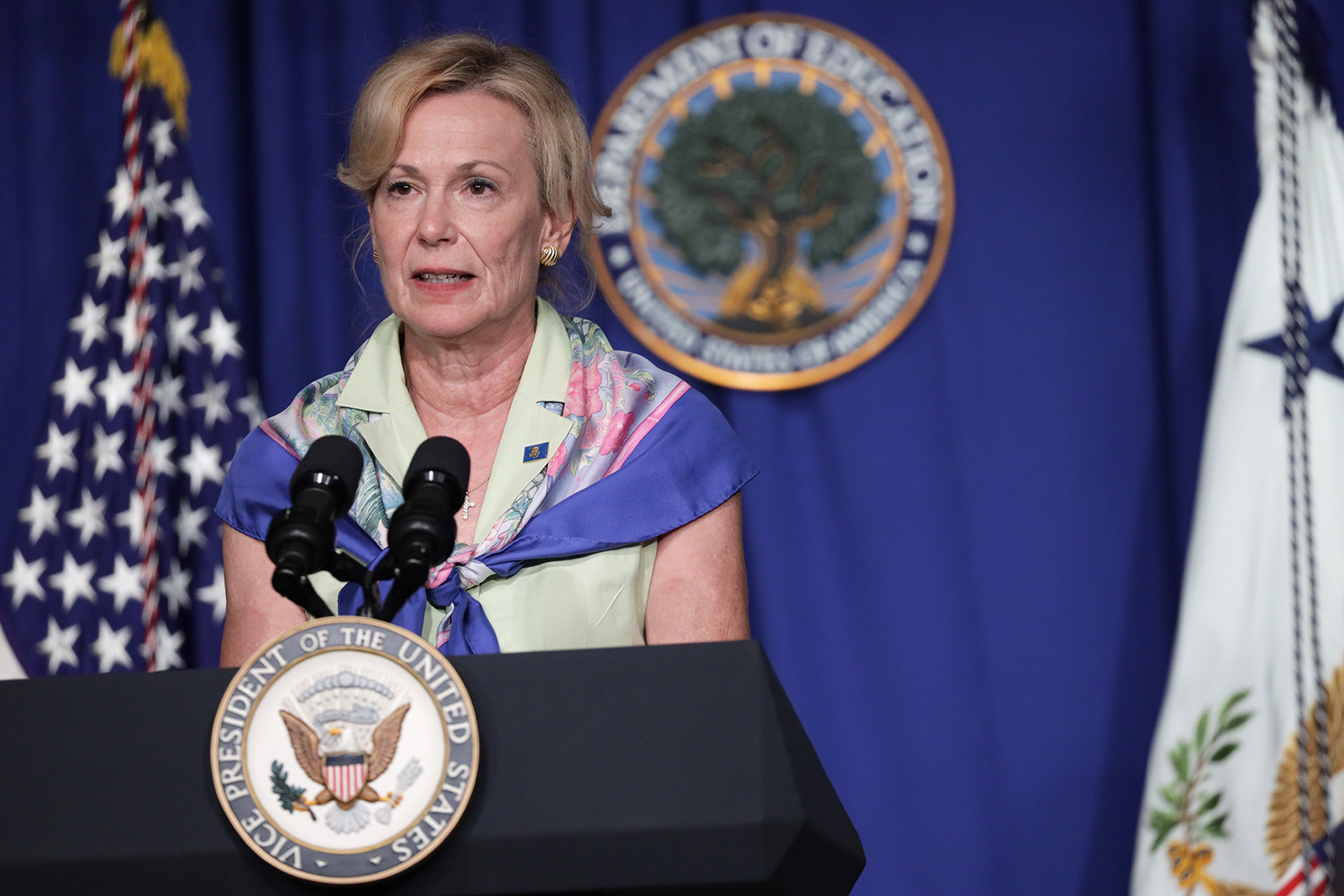 White House coronavirus response coordinator Deborah Birx speaks during a White House Coronavirus Task Force press briefing at the U.S. Department of Education in Washington, DC, July 8. Alex Wong/Getty Images
White House coronavirus response coordinator Deborah Birx speaks during a White House Coronavirus Task Force press briefing at the U.S. Department of Education in Washington, DC, July 8. Alex Wong/Getty ImagesWhite House Coronavirus Task Force coordinator Dr. Deborah Birx denied that the White House and the task force are sending mixed messages to Americans on appropriate coronavirus safety protocols.
Birx, who was in Raleigh, North Carolina, on Thursday meeting with the governor and university officials on Covid-19 issues, told CNN affiliate WTVD she has never sent a mixed message on the coronavirus.
“No, I give the same message to everyone. I'm very consistent in the messages,” she said. “The messages that I give within the White House, the messages I give to governors, it’s a very straightforward message to every American.”
We know that masks work, and we know it prevents transmission to others. Secondly, we know social distancing works.”
On Wednesday, President Donald Trump held a rally in Winston-Salem where few people were wearing masks or social distancing. The next day he held another rally in Michigan where, again, people crowded together and few wore masks.
“I am sure masks were offered to the people who attended the rally,” Birx said. “And what I'm saying to everyone who decides to attend a rally, to everyone who decides to go out into public spaces, please wear a mask.”
Birx said Trump has never asked her for advice on whether to hold large rallies, and although he rarely, if ever, wears a mask in public, she defended him.
“I'm not asked specifically those questions,” she said. “What I'm asked about is what is the public health message, and you can see it when he is out and giving press briefings he talks about the importance of social distancing, wearing masks, and I think he repeats that every time he goes out. So does the vice president."
But she did admit feeling discouraged when people don’t follow coronavirus guidelines.
“I’m frustrated any time I see anyone without a mask,” Birx said.
US reports more than 34,800 Covid-19 cases
From CNN's Tina Burnside
The United States reported 34,808 new Covid-19 cases and 894 virus-related deaths, according to Johns Hopkins University.
There are at least 6,396,073 virus cases in the US and at least 191,753 people have died, the JHU said.
The totals include cases from all 50 states, the District of Columbia and other US territories, as well as repatriated cases.
CNN’s map is tracking the US cases:
WHO program to speed access to vaccines but it needs more money
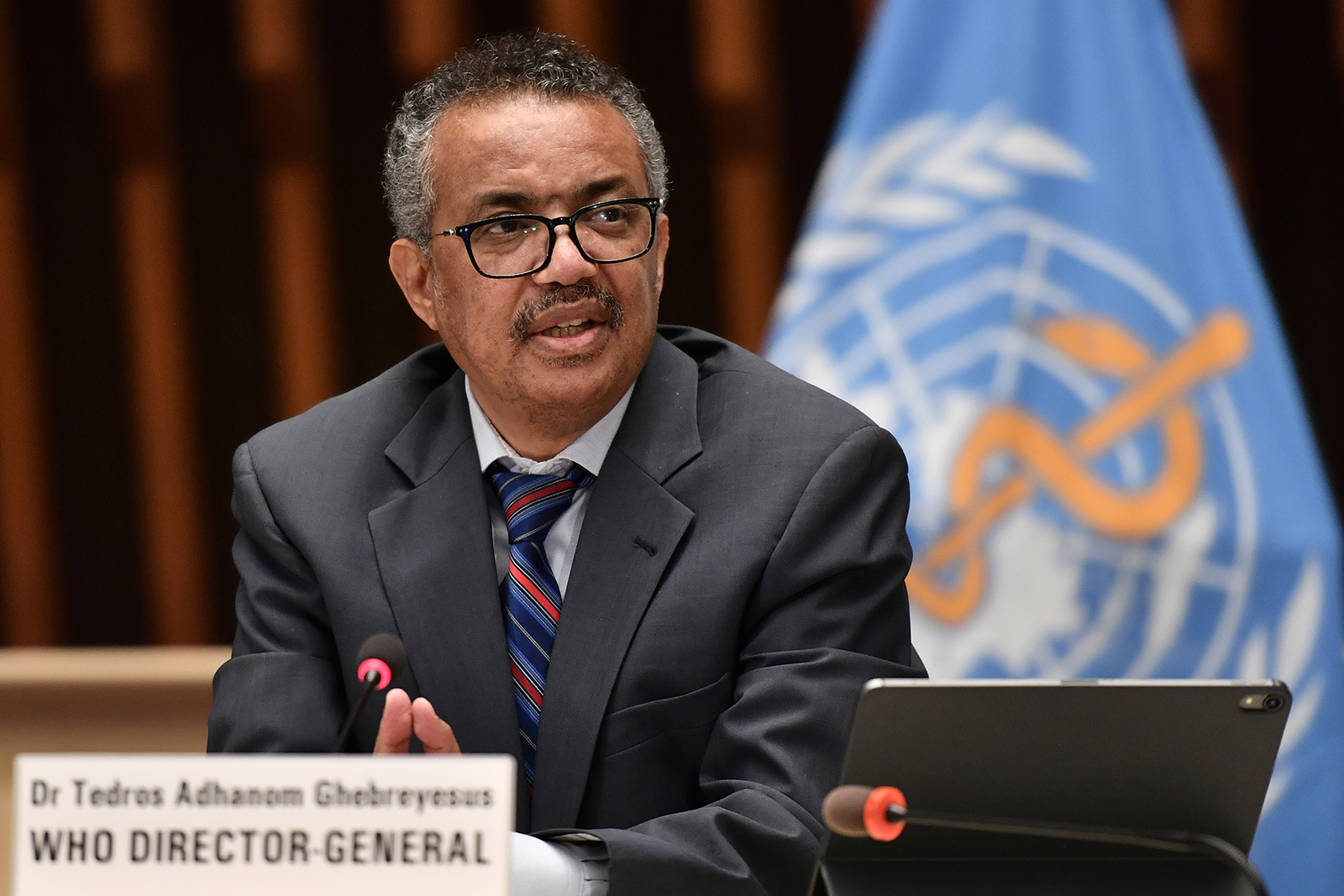 World Health Organization (WHO) Director-General Tedros Adhanom Ghebreyesus attends a press conference at the WHO headquarters in Geneva, Switzerland, on July 3. Fabrice Coffrini/Pool/AFP/Getty Images
World Health Organization (WHO) Director-General Tedros Adhanom Ghebreyesus attends a press conference at the WHO headquarters in Geneva, Switzerland, on July 3. Fabrice Coffrini/Pool/AFP/Getty ImagesA World Health Organization program aimed at speeding global access to coronavirus tests, treatments and vaccines needs $35 billion, director general Tedros Adhanom Ghebreyesus said Thursday.
The Access to Covid-19 Tools (ACT) Accelerator, launched in April, is a partnership with organizations including the European Commission, to “catalyze the development of and equitable access to vaccines, diagnostics and therapeutics,” Tedros said.
But it needs more funding.
And the program is threatened by bilateral vaccine deals and vaccine nationalism, he said.
“We need to rapidly scale up our clinical trials, manufacturing, licensing and regulation capacity so that these products can get to people and start saving lives,” Tedros said.
European Commission President Ursula von der Leyen said new solutions were needed "for prevention, testing and treatment of Covid-19."
"We all know we need them fast. We need them for all those in need, anywhere,” she said. “And we need them on affordable conditions.”
India has one of world's lowest Covid-19 mortality rates. But the numbers don't tell the whole story
From CNN's Jessie Yeung and Manveena Suri
 Relatives wearing protective suits as a precaution lower the body of a covid-19 victim for burial at a graveyard in New Delhi, India on September. 3. Manish Rajput/SOPA Images/LightRocket/Getty Images
Relatives wearing protective suits as a precaution lower the body of a covid-19 victim for burial at a graveyard in New Delhi, India on September. 3. Manish Rajput/SOPA Images/LightRocket/Getty ImagesFor months, India has been struggling to control the coronavirus pandemic with limited success.
The country of 1.3 billion people has the second-highest number of cases globally (more than 4.4 million), and the third highest number of deaths (over 75,000), according to Johns Hopkins University.
But India's reported mortality rate -- calculated by the number of deaths per 100 confirmed cases -- is surprisingly low compared to other countries with high infection rates.
India's Covid-19 mortality rate stands at 1.7%. For context, the same rate is about 3% in the US, 11.7% in the UK, and 12.6% in Italy, according to Johns Hopkins University.
The Indian government claims India's lower death rate is a sign of its success in handling the crisis, and has used the figure to support its decision to lift some coronavirus restrictions.
But some scientists in India warn that the numbers are incomplete and misleading -- and that relying on them to reopen the country could make matters worse.
So what's behind the numbers?
While the number of coronavirus cases in India may be rising, the mortality rate is dropping.
Some experts warn that the data is full of gaps: India has a weak, underfunded public health infrastructure, and for years it has failed to accurately record the deaths of its own citizens. Even when India isn't facing a pandemic, only 86% of deaths nationwide are even registered in government systems.
India isn't counting all Covid deaths: There's also the issue of undercounting Covid deaths due to insufficient testing and poor medical coding. India has stepped up its testing, but it still has one of the lowest rates of testing per capita in the world. Even if a Covid-19 patient tested positive before dying, they might not be counted as a Covid-19 death if they had other preexisting conditions, such as diabetes or cancer.
The rise in testing creates a misleading death rate: With more tests, authorities are detecting more cases. But the mortality rate is measured against the number of total confirmed cases -- so when cases rise, the rate will go down even if the number of deaths remains the same.
Daily deaths are actually rising: Even if the mortality rate is declining, it doesn't necessarily mean the number of deaths is dropping. Deaths have jumped from around 750 a day at the start of August, to more than 1,000 a day this week.
Read the full story:
India again reports the most new coronavirus cases anywhere in the world
From CNN's Swati Gupta in New Delhi
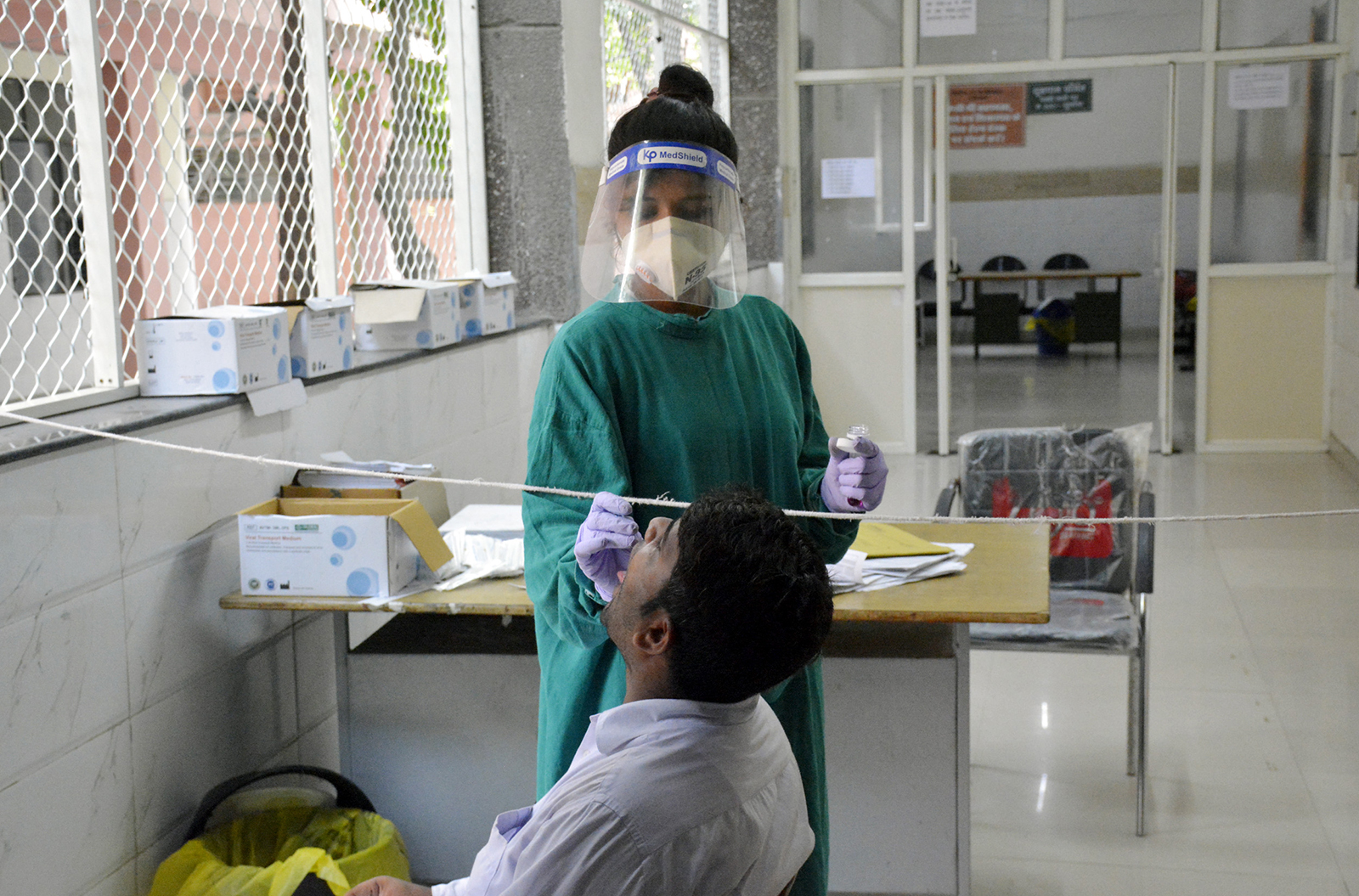 A health workers collects swab samples from people for coronavirus testing at a hospital in Ghaziabad, India, on September 9. Sakib Ali/Hindustan Times/Getty Images
A health workers collects swab samples from people for coronavirus testing at a hospital in Ghaziabad, India, on September 9. Sakib Ali/Hindustan Times/Getty ImagesIndia reported a new highest daily increase today with 96,551 new Covid-19 cases, according to the Ministry of Health and Family Welfare.
This is the second day in a row India has reported the highest number of new coronavirus cases registered by a single country, according to John Hopkins University data.
As of Friday morning, India's total number of confirmed cases stands at 4.56 million. Out of the nation's total, about 943,480 are active cases. The total number of recovered patients is more than 3.5 million, the ministry said.
India's death toll from the virus is 76,271, according to the Health Ministry.
More than 54 million samples have been tested to date, the Indian Council of Medical Research said.
CDC says Covid-19 death rate is under 1% for everyone but people over 70
From CNN Health’s Maggie Fox
The US Centers for Disease Control and Prevention said Thursday it had changed the way it was reporting death rates for coronavirus, and will now report the infection fatality ratio by age.
It’s all still based on approximations, and as part of the update the CDC also estimates it’s missing most cases of coronavirus in the US -- by a factor of 11.
According to the updated “best estimate” numbers posted on the agency’s website:
Transmission time: Under the best estimate scenario, it takes about six days, on average, for people to develop symptoms after they’ve been in contact with the virus.
ICU care: Just below 24% of people under the age of 50 who are hospitalized will need ICU care, the CDC estimates. This rises to 36% of people 50 to 64, and 35% of people 65 and older.
Fatality rate for those hospitalized:
Not only are the numbers an estimate, but reports of death rates lag by weeks, the CDC said. On average, it takes about 45 days for a coronavirus death to be reported.
Asymptomatic cases: The CDC calculates that 40% of cases are asymptomatic, and that these people without symptoms are about 75% as infectious as people with symptoms, although this is “highly uncertain.”
Infection fatality ratio is one of several ways of reporting mortality rates. It’s calculated by dividing the number of deaths by the number of actual infections -- and since the true number of coronavirus infections is not known, it is by necessity an estimate.
Birx says she’ll get a Covid-19 vaccine and would advise Trump to get one too
From CNN Health’s Shelby Lin Erdman
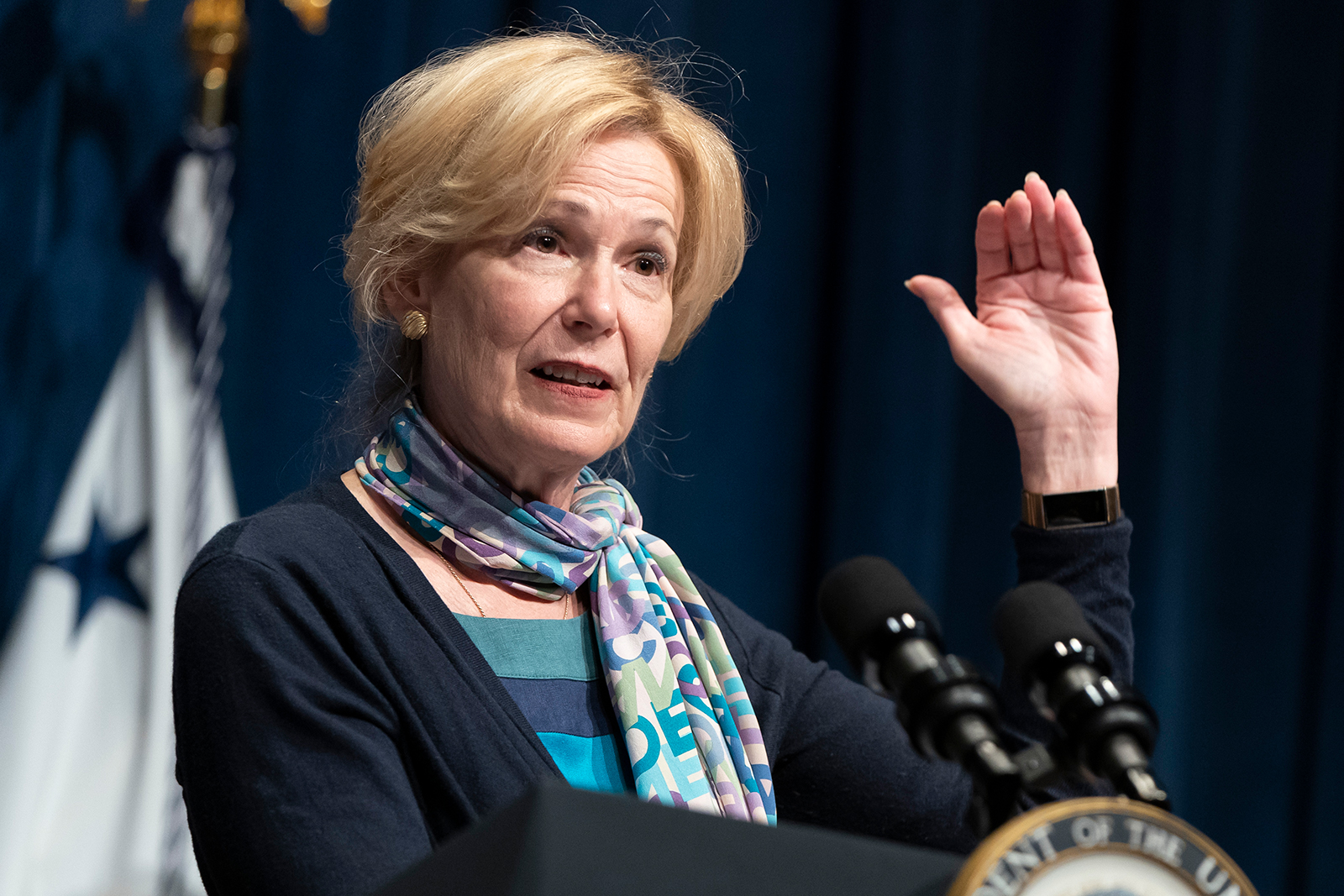 Dr. Deborah Birx, coronavirus response coordinator for the White House Coronavirus Task Force, speaks after a White House Coronavirus Task Force briefing at the Department of Health and Human Services in Washington, DC, on June 26. Joshua Roberts/Getty Images
Dr. Deborah Birx, coronavirus response coordinator for the White House Coronavirus Task Force, speaks after a White House Coronavirus Task Force briefing at the Department of Health and Human Services in Washington, DC, on June 26. Joshua Roberts/Getty ImagesWhite House Coronavirus Task Force coordinator Dr. Deborah Birx said she’ll “absolutely” get a coronavirus vaccine right away when one is approved, if she’s eligible.
“The reason I said if I'm eligible is because the first vaccines that come off, we're getting advice on who best to use those on because obviously we want it to be for the people who need it the most,” she said in an interview with WTVD during a visit to Raleigh, North Carolina.
“We're going to have lots of vaccine in January and February, but in October, November and December, there'll be less vaccine available,” she said. “It's very important that the people who need it the most are prioritized.”
“So, if I am eligible, I would. I always get my flu shot,” Birx said.
She also said she’d recommend President Trump get one, too.
“Absolutely. I give the same advice to any person not matter if they’re president, vice president or my parents.”
Birx urges college students to get tested, wear masks to protect against Covid-19
From CNN Health’s Shelby Lin Erdman
White House Coronavirus Task Force coordinator Dr. Deborah Birx on Thursday urged college students to get tested for Covid-19 and to wear masks.
“To every student out there, please get tested,” Birx said during an interview with CNN affiliate WTVD in Raleigh, North Carolina.
“It is really critically important because I know that if you know that you're positive, that you will protect others for those 14 days, and you'll really ensure that you don't spread the virus.”
Birx said she’s been traveling around the country talking to governors and heads of universities about how to keep people safe at school, including in North Carolina, which has seen a number of recent coronavirus clusters on college campuses around the state.
And taking classes online does not mean students will be isolated, she noted.
“Many of those college students, even though they're online, are living in the college town, and they're living off campus, in many cases,” she said.
“How do we get information to them, how do we encourage them to be tested, how do we encourage them to protect the vulnerable members of the community, to really ensure that they are wearing masks and when they’re in the community, they're wearing masks and protecting those around them and I think that's really going to become very key,” Birx said.

 5 years ago
595
5 years ago
595 